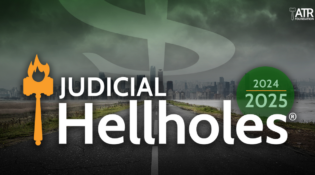SOUTH CAROLINA SUPREME COURT FAILS TO REIN IN JUDICIAL HELLHOLES® JUDGE
In a disappointing decision, the South Carolina Supreme Court upheld Judge Jean Toal’s appointment of a receiver over a Canadian company in order to subject it to asbestos lawsuits in her South Carolina courtroom.
As discussed extensively in the most recent Judicial Hellholes report, Judge Toal, the judge overseeing South Carolina’s asbestos litigation, has expanded the asbestos docket by appointing a receiver over various defunct entities to subject the companies to lawsuits like other asbestos defendants. She has created at least twenty-one receiverships, using the same receiver – South Carolina personal injury lawyer Peter Protopapas – to pursue coverage under insurance issued to defunct companies. Protopapas then receives a third of the proceeds from litigation.
Judge Toal appointed Protopapas as a receiver for Atlas Turner, a Canadian asbestos mining firm that was “once owned by the government of Quebec.” When this foreign company refused to respond to discovery in a South Carolina asbestos case in 2023, Judge Toal held the company in contempt, struck its pleadings, held it in default, and, at plaintiffs’ request, appointed a receiver to “administer ‘any insurance assets’ including ‘any claims related to the actions or failure to act of Atlas’s insurance carriers.’”
The state’s high court held Atlas Turner’s lack of compliance with the legal system it chose to enter deemed it liable for injuries maintained by citizens of South Carolina. The court said while receivership should be used only in extreme cases warranting an equitable solution, Atlas Turner’s history of profiting from asbestos sales helped justify the trial court’s order.
South Carolina’s asbestos environment first landed on the Judicial Hellholes® list in 2020, and since that time it has risen as high as #3 in the most recent report. Over the years, Judge Toal has become more extreme, seemingly emboldened by the hands-off approach of the South Carolina appellate courts. Unfortunately, this decision will likely only lead to greater abuses and more pro-plaintiff rulings in the state.







